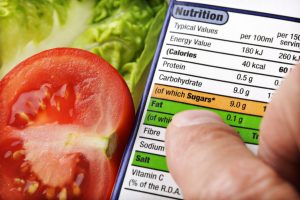Why You Are Not Achieving Ketosis
When you start a ketogenic diet, the ultimate goal is to get your body into a state of ketosis where your body uses fat for fuel instead of glucose. This is when you start to reap all of the amazing benefits of the ketogenic diet like weight loss, sustained energy, and improved mental focus. However, it can be frustrating if you don’t get into ketosis even when you think you are doing everything right.
Let’s take a look at some of the reasons why you may not be achieving ketosis and steps to get you there.
Reasons Why You Are Not Achieving Ketosis
- You are ONLY Increasing Your Fat Intake: While the ketogenic diet is a very high-fat diet, some people make the mistake of only increasing their fat intake but not restricting their carbohydrates. Simply increasing your fat intake won’t get you into ketosis. You have to restrict your carbohydrate intake as well. When you eliminate the glucose in your body it will look to ketones as a fuel source, and you will achieve ketosis.
- You are Eating too Much Protein: While the ketogenic diet isn’t considered a low-protein diet, you want to be careful how much protein you are consuming as too much can throw your body out of ketosis. You don’t want to overdo your protein intake, but you do want to make sure you are eating enough to sustain energy and muscle mass. The general rule of thumb for someone who isn’t extremely active is to consume 0.8 grams of protein per pound of lean body mass.
- You Aren’t Reading Nutritional Labels: The ketogenic diet is all about restricting your carbohydrate intake, so reading food labels is going to be essential to getting into ketosis. Sugar is in just about everything, so you want to make sure you aren’t accidentally consuming too many carbs by eating something with hidden sugar.
- Stress: If you are too stressed out, you may not be reaching ketosis. Your body’s cortisol levels increase as stress increases. High levels of cortisol can increase your cravings for sugary foods and can throw off your hormone balance. Neither are good for getting into ketosis. While stress is an inevitable part of life, try your best to do something relaxing each day. This will drastically help reduce your cortisol levels and give you a better chance of getting into ketosis.
- You Aren’t Getting Enough Sleep: Not getting enough sleep can also raise your cortisol levels. Despite restricting your carbs, if you’re sleep deprived, you are much less likely to get into ketosis. It is also helpful to try to get to bed before 10 PM each night to prevent an evening cortisol spike from keeping you up all night.
If you are struggling to get into ketosis even though you’ve restricted your carbohydrate intake and are eating lots of healthy fat, it may be time to look at some other factors. Try to reduce your stress levels, get enough sleep, and take a look at how much protein you are consuming. With a little troubleshooting, you will be on your way to achieving ketosis before you know it.



